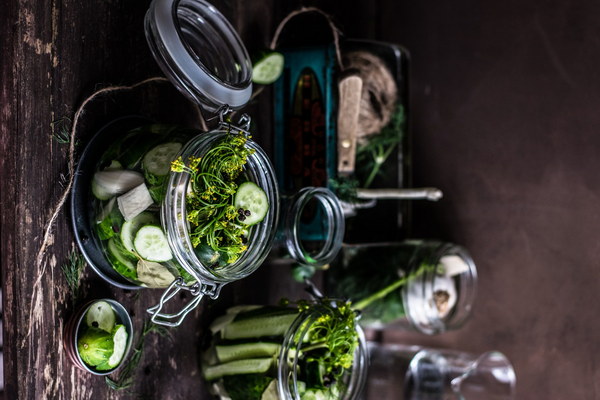How to Protect Your Liver Liver-Friendly Strategies for Those on Medication
How to Protect Your Liver: Liver-Friendly Strategies for Those on Medication
In today's fast-paced world, medication has become an integral part of our daily lives, treating everything from minor ailments to chronic diseases. However, the side effects of many medications can sometimes take a toll on our liver, the body's hardworking organ responsible for filtering toxins and processing nutrients. If you're taking medication and are concerned about the potential impact on your liver, here are some liver-friendly strategies to help you protect and maintain your liver health.
1. Consult with Your Healthcare Provider
Before starting any new medication, it's crucial to discuss it with your healthcare provider. They can assess whether the medication is necessary and whether it poses a significant risk to your liver. If you already take medication and are concerned about its impact, schedule a check-up to discuss your concerns and explore alternative options if necessary.
2. Optimize Your Diet
A balanced diet is key to liver health. Here are some dietary tips to consider:
- Increase Your Intake of Antioxidants: Antioxidants help protect your liver from oxidative stress. Include plenty of fruits and vegetables in your diet, such as berries, spinach, and bell peppers.
- Choose Healthy Fats: Incorporate healthy fats such as those found in avocados, nuts, and olive oil, which can help reduce inflammation and support liver function.
- Limit Alcohol: Alcohol can be particularly harsh on the liver. If you consume alcohol, do so in moderation and consider alternative beverages during your medication treatment.
- Stay Hydrated: Adequate hydration helps your liver flush out toxins. Aim for at least 8 glasses of water per day.
3. Exercise Regularly
Physical activity is another important factor in liver health. Regular exercise can help reduce the risk of fatty liver disease and improve overall metabolic health. Aim for at least 30 minutes of moderate exercise most days of the week.
4. Avoid Over-the-Counter Medications
Non-prescription medications like acetaminophen can be harmful to the liver, especially in high doses. If you need to take pain relievers, opt for non-steroidal anti-inflammatory drugs (NSAIDs) like ibuprofen or naproxen, but always follow the recommended dosage.
5. Monitor Your Liver Function
Regular liver function tests can help you and your healthcare provider monitor the health of your liver. If you're taking medication that may affect the liver, it's important to keep track of these tests to ensure that your liver is functioning properly.
6. Avoid Toxic Substances

Exposure to certain toxic substances can exacerbate liver damage. This includes substances like heavy metals, certain cleaning agents, and even some pesticides. Be mindful of your exposure to these substances and take precautions to minimize contact.
7. Consider Supplements
While supplements should not replace a healthy diet and lifestyle, some may support liver health. Consult with your healthcare provider before taking any supplements, as some can interact with medications or have side effects.
- Milk Thistle: This herb is well-known for its liver-protective properties.
- Alpha Lipoic Acid: An antioxidant that can help reduce liver inflammation and improve liver function.
- Vitamin E: Another antioxidant that may support liver health.
8. Manage Stress
Chronic stress can have negative effects on your liver. Find healthy ways to manage stress, such as meditation, yoga, or deep-breathing exercises.
By implementing these strategies, you can help protect your liver while on medication. Remember, maintaining a healthy liver is essential for overall well-being, and taking proactive steps can make a significant difference in your long-term health. Always consult with your healthcare provider for personalized advice and support.









